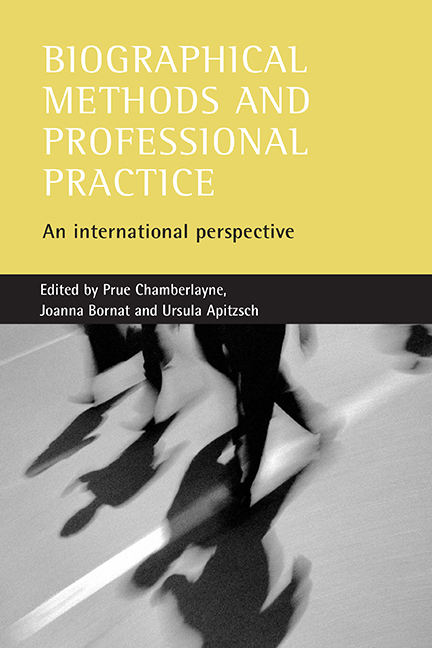Book contents
- Frontmatter
- Contents
- Notes on contributors
- one Introduction
- Part One Putting the subject into policy and practice
- Part Two Subjectivity in context
- Part Three Self-awareness in research and practice
- Part Four Recognising trajectories of disempowerment
- Part Five Biographical resources in education and training
- Index
two - Biographical methods and social policy in European perspective
Published online by Cambridge University Press: 20 January 2022
- Frontmatter
- Contents
- Notes on contributors
- one Introduction
- Part One Putting the subject into policy and practice
- Part Two Subjectivity in context
- Part Three Self-awareness in research and practice
- Part Four Recognising trajectories of disempowerment
- Part Five Biographical resources in education and training
- Index
Summary
The rapid expansion of biographical methods comes at a time of frustration with a number of aspects of social policy, such as positivistic, top-down approaches, the failure to solve issues of expense, efficiency and dependency, and the cultural lag between welfare systems and social change. European welfare systems, already under pressure from neoliberal forces, must reorient to new social realities in the labour market, in relations between public and private spheres, in gender relations, and in notions of citizenship and democratic agency. Biographical methods provide a tool for reconnecting welfare systems with lived experience and processes of social change, and for elaborating and operationalising new social policy concepts such as social capital, active social welfare and social quality. New and still pliable policy terms are in the process of formation, including at the European level.
The focus on the structure of biographies turns the generalising assumptions and procedures of social science on their head, levering social policy away from its alignment with economics and politics, creating new affinities with psychoanalysis, anthropology and literary criticism. This realigning of disciplines is just one aspect of a paradigmatic shift (Kuhn, 1970) towards a new definition of politics and welfare democracy, a more differentiated and cultural approach to welfare resources, and a new set of relationships between public and private spheres.
In his book Liquid modernity (2000), Zygmunt Baumann argues that the public agora of debate and negotiation between the individual and common, private and public good, has become empty and urgently needs rebuilding. There is also a discrepancy between the de jure and de facto status of individual lives, the supposed scope for autonomy and self-determination as against the constrained and ‘un-free’ nature of actual lives. He says that the key to human emancipation lies in relearning forgotten citizenship skills and reappropriating lost citizenship tools, although this must also be done in new and more generous ways than before (Baumann, 2000, p 41). This is surely similar to the Arendtian idea of a new kind of politics, in which people would be recognised for who – rather than what – they are, and appear to each other not as objects, but as subjects acting with words and deeds (Cavarero, 2000, p 21).
- Type
- Chapter
- Information
- Biographical Methods and Professional PracticeAn International Perspective, pp. 19 - 38Publisher: Bristol University PressPrint publication year: 2004

